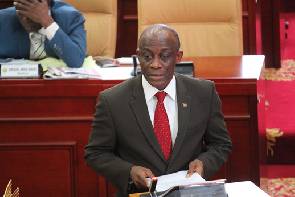
The government may take a firm retreat and reintroduce the suspended 15 percent value-added tax (VAT) on electricity according to projections made by the International Monetary Fund (IMF).
IMF indicated that the reintroduction will become necessary if inflation rates continue to fall.
The government decided to halt the implementation of the tax imposition after strong public backlash, especially from residential consumers.
The VAT on residential electricity was initially introduced as part of a series of revenue-generating measures under the IMF-supported COVID-19 recovery efforts.
In response to the backlash, the government took swift action and announced a delay in the roll out.
A letter dated January 1, 2024, from the Ministry of Finance and signed by the then-Minister Ken Ofori-Atta, instructed the Electricity Company of Ghana (ECG) and the Northern Electricity Distribution Company (NEDCo) to apply the VAT to residential customers whose electricity consumption exceeded a specified threshold.
The directive was part of a series of efforts to ensure that the tax burden would be felt most by higher-consuming households, thereby sparing those with lower electricity usage from the full impact of the VAT.
Despite these efforts to mitigate the impact on lower-income households, the planned implementation of the VAT sparked significant opposition from various sectors of society, including Organised Labour, which quickly emerged as a vocal critic of the policy.
Organised Labour, representing a broad coalition of workers’ unions across the country, argued that the tax would exacerbate the already difficult economic conditions faced by many Ghanaians.
The group warned that the imposition of the VAT would lead to a significant increase in living costs, making it even harder for ordinary citizens to make ends meet.
Faced with the prospect of a nationwide demonstration by Organised Labour, which was scheduled for February 13, 2024, the government decided to suspend the implementation of the VAT on February 7, 2024.
The suspension was however seen as a temporary reprieve by many, and it was widely interpreted as a strategic move to avoid further escalation of public unrest.
The IMF, in its July 2024 Country Staff Report, indicated that the government is likely to move forward with the VAT policy once inflationary pressures ease.
“On the revenue side, implementation of VAT on residential electricity (expected yield 0.17 percent of GDP) was suspended due to strong social resistance. The authorities are committed to implementing this measure when the inflation dynamics are more conducive,” the IMF stated.
END





